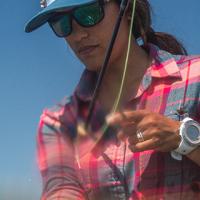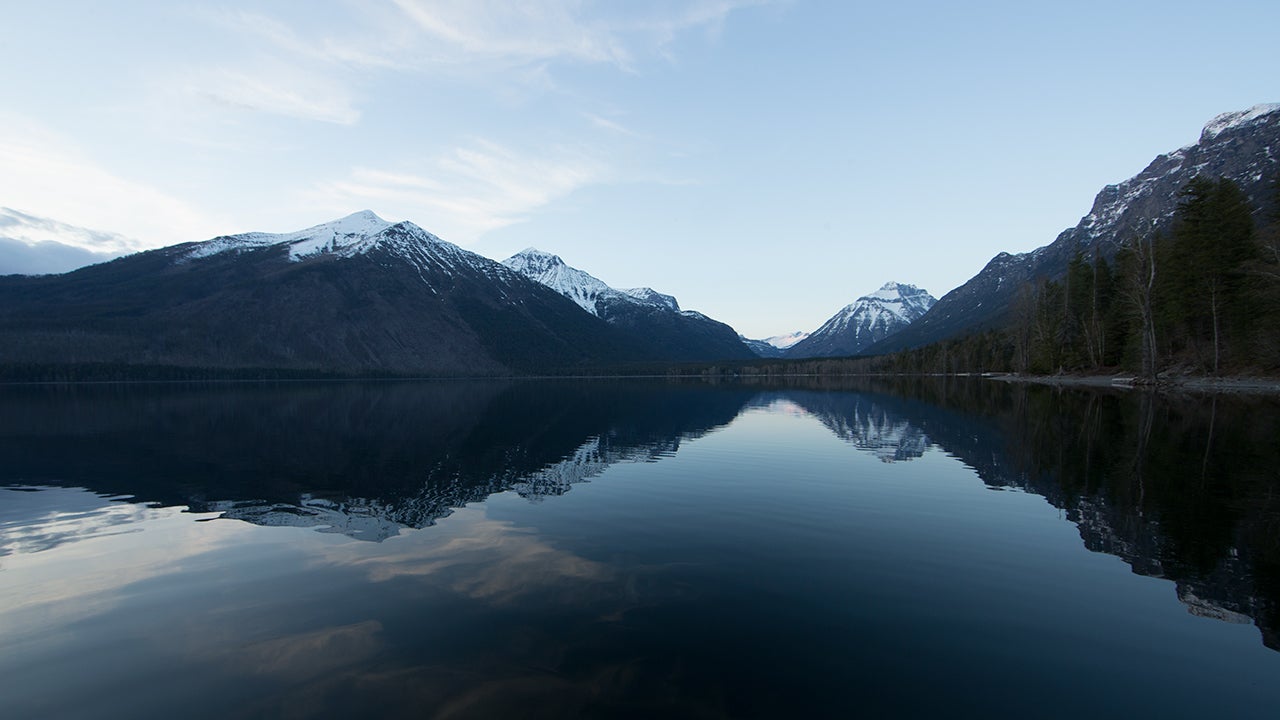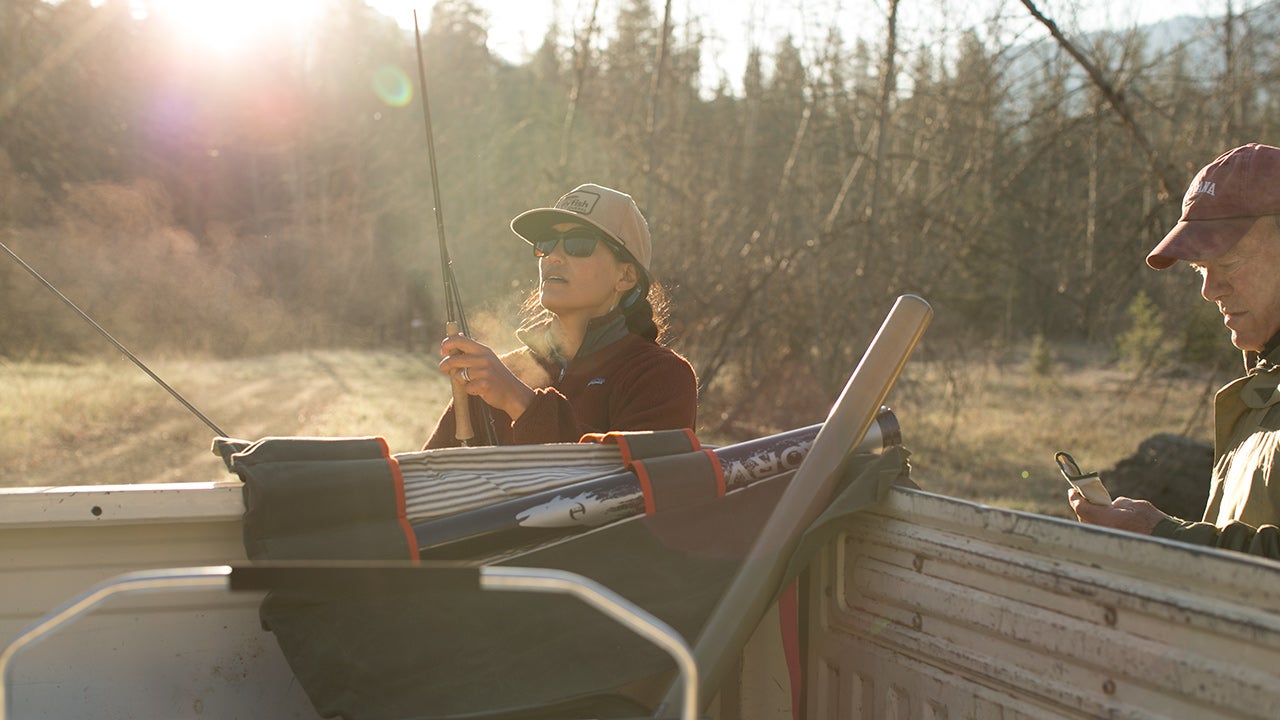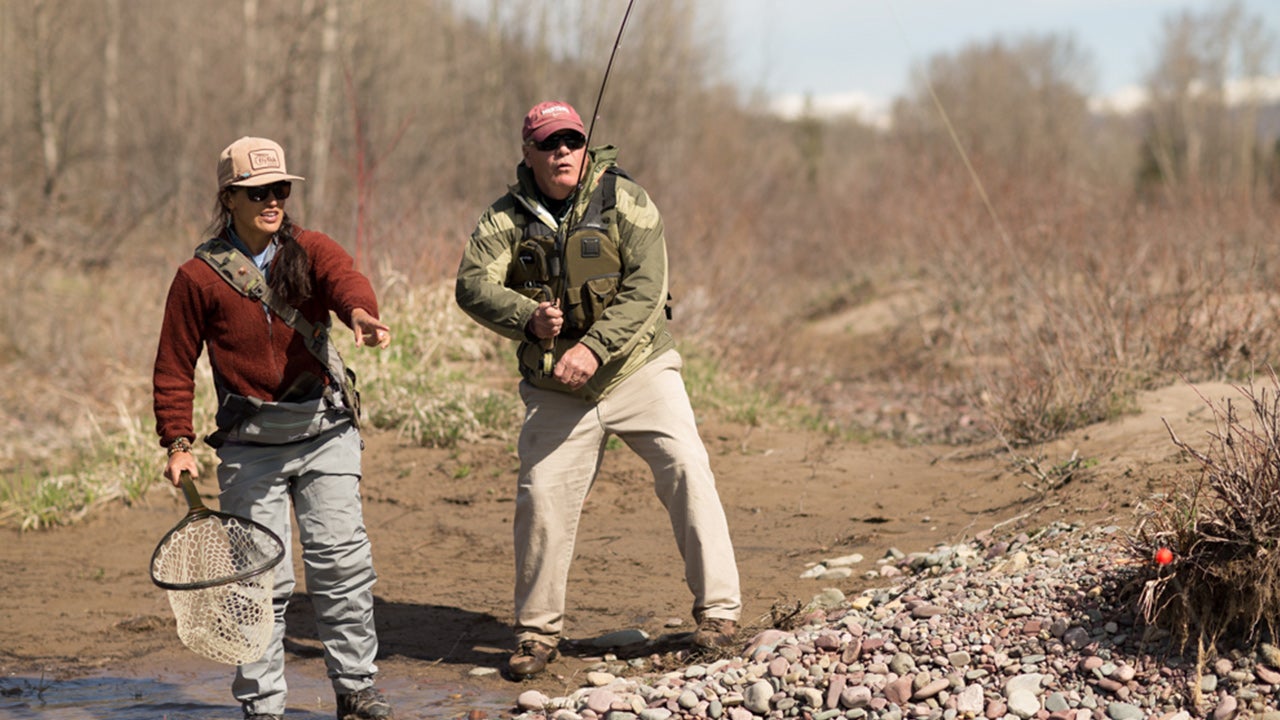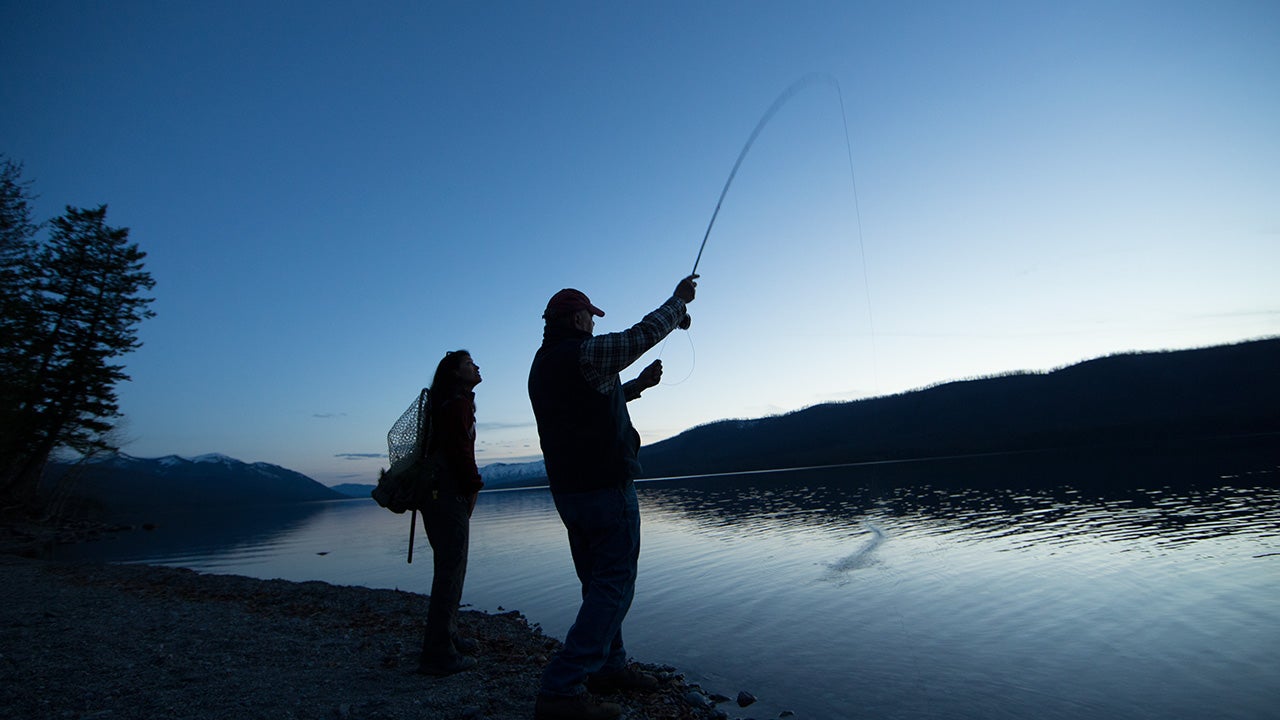The Last Best Man
These are things about my dad – I’ve always called him Papa – which I’ve never questioned. They just are. Another thing I never thought to question, until recently, is why he’s not a fly fisherman. It doesn’t make sense. My sister and I have both worked in the fly fishing industry since high school. But unlike many of our peers, our dad didn’t teach us, because he didn’t know how.
He’s a lifelong outdoorsman. Professionally, he was a ski patroller, wildland firefighter, National Park ranger, and natural resources manager. Growing up in the suburbs of San Francisco, his parents took him camping and horseback riding in national parks like Glacier, Lassen, and Yellowstone. He lived and worked near Glacier National Park for 35 years.
When Papa and I first started panning for the why-hasn’t-he-ever-fly-fished answer last summer, we had no idea we’d root up so much musty earth and end up with so many jewels in our hands. Prospecting can turn up precious gems, but it’s a dirty job.
A family reunion in California first unveiled my dad’s fly fishing lineage. Aunts, uncles, and cousins told stories of my grandfather and great aunt jumping boxcars into the mountains, where they’d fly fish for a week before making their way back to the city grind. There are black-and-white photos of my dad’s family fly fishing in national parks across the country. As we found more evidence that he had plenty of opportunities to try fly fishing throughout his life, the question started to grind on him a bit. How could this passion run so gin-clear in his own father and children but not him? Did he simply ignore the calling? There’s a reason we don’t just dig at the surface level for the answer. We pulled out pickaxes to go deeper because we wanted to know whether a rod and reel could be tools to help my father heal.
After retiring from a full career in the National Park Service, Papa started a second career, intending to serve his local community in a meaningful way. In his mid 50s, he went back to college, got a Master’s degree in counseling, and became a therapist specializing in bereavement and family health. After several years working with a mental health agency, he started his own counseling practice just as the north Flathead Valley’s industrial and service-based economy took a hard hit.
The blows were literal, as lost jobs resulted in spikes in domestic violence, child abuse, alcoholism, depression, and suicide. Papa found himself working with both victims and perpetrators. He fought to save marriages and secure brighter futures for children. His proximity to the despair among his clients became too much to bear, and the weight of treating so much trauma took its toll.
While staying outwardly strong for his clients, his body went in to protection mode and shut down, triggering a scary amnesic event that hospitalized him and left him with Post-Traumatic Stress Disorder (PTSD). He closed his counseling practice to work on healing himself, but that move backfired. He felt he’d abandoned his clients in their time of need. For years, he continued to worry about the people in our town he knew were struggling. And he simply couldn’t recover.
My dad agreed that outdoor adventure therapy with a natural adrenaline infusion might help. He slowly worked back into downhill skiing, becoming stronger with every chairlift conversation, powder day, and crash. We thought fly fishing might have a similar effect. I figured if we fished in an area where he’s truly at home – Glacier National Park – he would be surrounded by Mother Nature’s same power that had fueled him for years.
I was a little surprised when Papa easily accepted my invitation to float and learn to fly fish on the Middle Fork of the Flathead this spring. We waited for good weather and accommodating runoff levels.
Before the float, we made a gutsy move. We visited Glacier’s native plant nursery. My dad was resource manager of the team of botanists who developed the nursery in the 1980s. It’s an innovative revegetation program that rehabilitates impacted areas of the park with plants and seeds specifically harvested and cultivated for each restored area. Papa hadn’t been back since retiring 17 years ago. It was emotional, as the impact of the nursery’s success and global importance impressed upon him. Humble to a fault, he still couldn’t help but see his team had made a difference and left a legacy for our children’s children, just as the Park Service intends to. With tiny plants pushing up into sunbeams, the wind blowing spring pine scent, and alpine peaks casting shadows over us, I suspected the healing had already begun.
As soon as we got to the put-in, I was so nervous about making Papa’s experience meaningful and fun that everything became a blur. It was in mechanical slow motion, like looking at a dream through a straw.
I think the events played out in the normal way: I taught Papa to rig the rod. After an on-shore lesson, I settled him in the front casting seat of my Adipose skiff and pushed us off. He easily picked up casting, mending, and line management. He lobbed a purple prince nymph into a seam on the water. The pink indicator dove. I happened to be looking at his face, and in slow motion, I realized that the light flashing in his wide eyes had to be coming from a trout on the end of his line. Then... BANG! The slow motion and the blur erupted into a full-speed, full-clarity joy so real, so loud, and so colorful it was as though I’d never seen a living being catch a fish before.
Fighting a sizable westslope cutthroat trout, he positively hooted. Hollered. Threw back his head like a wolf and howled. Reeled. Hooted again. I’ve never been so proud to net a fish. The way he easily knelt and lifted it from the net for a quick photo looked so effortless that I suspected the cutthroat was given a memo to cooperate. I got chills watching him gratefully release the native fish into the eddy and forced myself to not blink as she disappeared in the glacial-silted current.
I tasted blood.
There’s this place on the inside of my bottom lip I learned to bite to suppress laughter or tears when I worked as a television news anchor. For the first time ever, biting my lip didn’t work, and I laughed and cried wildly, sprawled out on the bank of the Flathead River with my dad.
Finally, he stood up and said, “Well, that was something else, Pumpkin. Let’s do it again.”
Later, someone asked Papa if it was strange to learn to fly fish from his daughter.
“No,” he said. “All three of my children have been teaching me things all my life.”
I still don’t know whether my HEE-row will ever refer to himself as a fly fisherman. But I do know that if he becomes passionate about fly fishing, he’ll share it with someone who needs, for whatever complex or simple reason, the healing that comes from the sun on their face, the wind in their hair, and a wild trout sliding from their hand.

